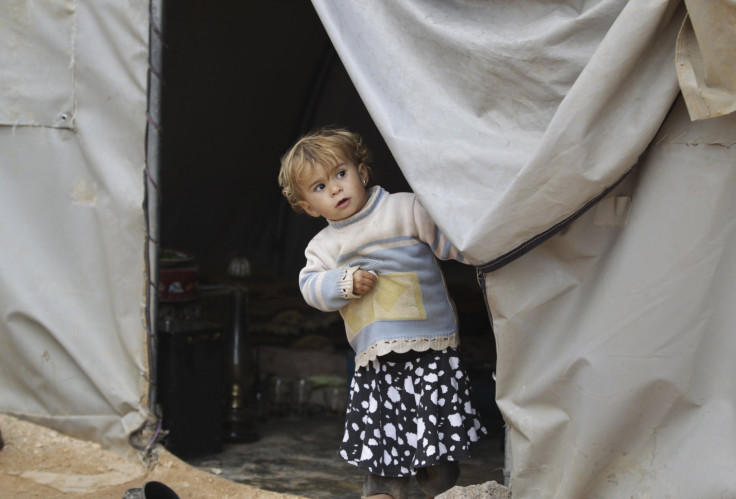UN Announces Suspension Of Massive Syrian Food Aid Program Serving 1.8M Refugees

Barely weeks after the United Nations was forced to drastically reduce food rations for refugees in Kenya, the U.N.’s World Food Program (WFP) announced the suspension of food assistance to more than 1.8 million Syrian refugees. The U.N. agency said, in a statement released Monday, it needs an additional $64 million in December alone to support the displaced refugees.
“The suspension of WFP food assistance will be disastrous for many already suffering families,” WFP Executive Director Ertharin Cousin said, in the statement, appealing to the donors to fulfill their commitments. “A suspension of WFP food assistance will … potentially cause further tensions, instability and insecurity in the neighboring host countries.”
The United Nations High Commissioner for Refugees (UNHCR) and WFP, which rely on donations for their massive relief and rehabilitation work, have, in recent months, struggled to cope with near-simultaneous humanitarian crises in Syria, Iraq and a number of African nations reeling under an Ebola outbreak. In November, the WFP announced it would slash by half the food rations being provided to South Sudan refugees in Kenya, adding the agencies needed about $38 million in funds to cover their operations in the country.
In Syria, which is currently in the grip of one of the worst humanitarian disasters in recent years, at least 2.5 million people are believed to be internally displaced. Worsening conflict between forces loyal to President Bashar Assad, Syrian rebels and militants of the Islamic State group, has led to the exodus of an additional 1.8 million people to the neighboring nations of Jordan, Lebanon, Iraq and Turkey.
“We are very concerned about the negative impact these cuts will have on the refugees as well as the countries which host them. These countries have shouldered a heavy burden throughout this crisis,” Muhannad Hadi, WFP’s regional emergency coordinator for Syria, said, in the statement.
The suspension of aid is likely to severely affect the refugees, who receive voucher cards that can be used to purchase food from local shops. The U.N. said that the program, which is believed to have provided aid worth nearly $800 million so far, will resume as soon as the agency has adequate funds.
© Copyright IBTimes 2024. All rights reserved.












